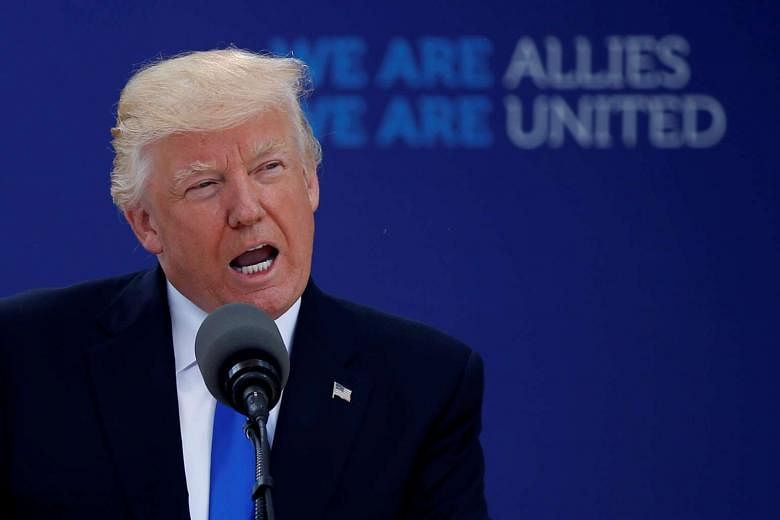BERLIN (Reuters, AFP) - A top adviser to Donald Trump confirmed on Friday (May 26) that the US president had criticised Germany as "very bad" on trade at a meeting with EU officials in Brussels on Thursday (May 25).
"He said they're very bad on trade, but he doesn't have a problem with Germany," White House economic adviser Gary Cohn told reporters at a Group of Seven summit in Sicily.
Cohn said Trump had pointed out during the meeting with European Commission President Jean-Claude Juncker and European Council President Donald Tusk that his father had German roots in order to underscore the message that he had nothing against the German people.
Trump's spokesman Sean Spicer said Trump had "tremendous respect" for Germany and had only complained about unfair trade practices in the meeting.
Earlier, Juncker also played down the remarks, which were first reported by German media groups Spiegel and the Sueddeutsche Zeitung.
They translated "bad" with the German word "boese", which can also mean "evil", leading to confusion when English-language media translated the German reports back into English.
"The record has to be set straight," Juncker said, noting that the translation issue had exaggerated the seriousness of what Trump had said. "It's not true that the president took an aggressive approach when it came to the German trade surplus."
"He said, like others have, that (the United States) has a problem with the German surplus. So he was not aggressive at all," Juncker added.
The German trade surplus, which reached a record 253 billion euros (S$390.9 billion) in 2016, has also been a source of contention within Europe, with Berlin's partners encouraging it to do more to promote domestic demand.
Germany has pushed back, describing the surplus as a consequence of its competitive products, particularly cars, and the independent European Central Bank's loose monetary policy, which has pushed down the value of the euro, making German goods more attractive abroad.
Mr Trump's reported comments came during a visit to Brussels where he berated Nato allies for "not paying what they should be paying" and did not declare his commitment to the alliance's collective defence guarantee.
Mr Trump, even before his election, had attacked Germany and Chancellor Angela Merkel.
In keeping with his nationalist economic agenda, Mr Trump had in particular hit out at Germany's substantial trade surplus with the US, threatening to introduce customs duties in retaliation.
After describing his meeting with Dr Merkel in Washington in March as "GREAT", Mr Trump the following day launched a diatribe against Germany, accusing it of owing "vast sums of money" to Nato and the US.
For her part, Dr Merkel had called on Mr Trump after his election to uphold the values of Western democracy following a divisive presidential campaign.

